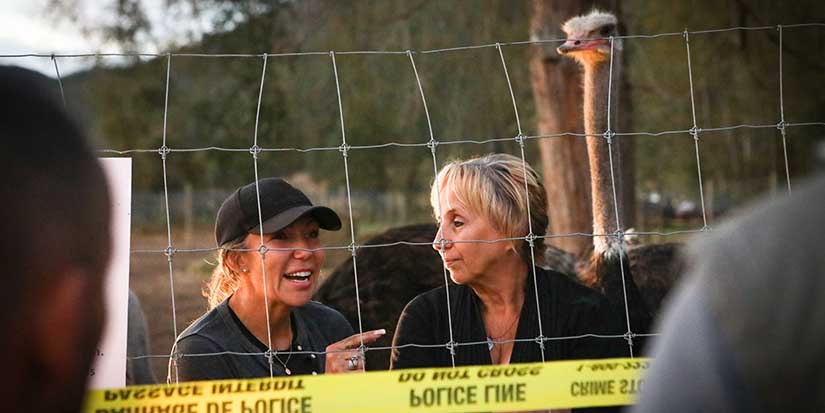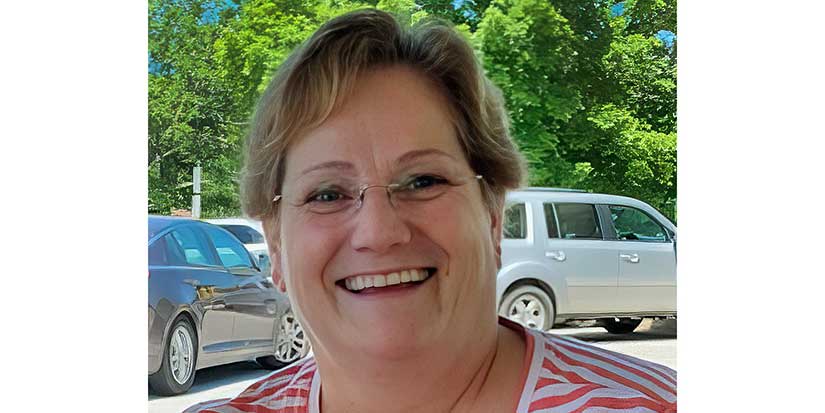Latest News
Inclusion is the point in this Cultch performance
Published 2:14 PST, Fri February 1, 2019
Last Updated: 2:12 PDT, Wed May 12, 2021
Theatre-makers Dan Watson and his partner
Christina Serra had their first child, Bruno, nine years ago. Then everything
changed.
“Very shortly after Bruno was born, the
doctors said we don’t know how much but he’s definitely going to be different.
There is some damage to the brain that is definitely going to affect his
development,” Watson says.
As a consequence, the way Serra and Watson
make theatre has changed.
“We started creating projects with people who
identify as disabled. In Ontario there is a real lack of opportunity for adults
and for young adults,” Watson says.
Looking for his next theatre project, Watson
was introduced to playwright and actor, “Tony Diamanti (who) had a script,
inspired by his life, that he wanted Watson read.
Watson says, “I had a look at it and thought,
‘This guy is funny with a lot to say.’ It’s exactly the kind of opportunity we
would want for Bruno if he was interested.”
So Watson and and Serra started to work with
Diamanti and his partner Liz MacDougall.
Watson says “We all started to share our
stories. It went from his story to all of our stories, two real-life couples so
as our friendship developed it became all of ours, the four of us.” It became
the award-winning play, “This is
the Point,” presented at the Cultch, by Ahuri Theatre and the Toronto Theatre
Centre, as part of the PuSh International Performing Arts Festival. It opened
Jan. 29 at the historic theatre, the main Cultch stage.
Diamanti is non-verbal, using augmentative
and alternative communication(AAC). An example of one kind of AAC is that used
by the late physicist, Stephen Hawking, but there are many options for
communications beyond just speaking words out loud.
Because “This is the Point” covers adult
topics like societal attitudes towards healthy sexuality in adults with
disabilities, it’s aimed at an adult audience. It is also a relaxed
performance. That means it will be user-friendly, including people on the
autism spectrum. Watson says they have designed in factors that make “This is
the Point” less jarring in its stagecraft. Both Ahuri Theatre and the Cultch
see relaxed performances as a time when the normally strict rules of theatre
behaviour are also relaxed.
Anjela Godber, outreach manager at the
Richmond-based Pacific Autism Family Network says that it is a good opportunity
for all, including people on the Autism spectrum.
“For the most part, most theatre productions
for adults don’t allow you to get up and move around in the performance.
Theatre that is inclusive to different behaviours has typically only been open
only to children,” Godber says.
“We all do them, our “stims,” to help us
relieve stress or anxiety or worry or boredom. We tap our feet, bite our nails,
twirl our hair, things that are a little more subtle and not overly disruptive,”
Godber says.
“For some people on the spectrum, in
situations that are anxiety-producing, their stims are little more disruptive.
They may yell out, jump up and down, or kick their feet–things that could be
very disruptive to other theatre goers.”
She describes the benefits of a relaxed
performance, “If individuals are able to get up and leave during a part loud
part of the performance or, if lights are flashing, or if they can just get up
and walk around outside or at the back the theatre, it’s fantastic.”.
And the autism network represents much more
than just children on the autism spectrum, Godber says of their Cessna Drive
facility, “Yes, we have autism in our name but we are inclusive for everybody.
For people with mental health challenges, for a wide variety of people with
different needs. We try to be as inclusive across the board as we can.”
“Whether we are trying to help with
pre-employment skills or employment skills, there are a number of different
service providers housed at the autism network, across the life-span from
preschool children centre-based early intensive behaviour intervention to
occupational therapy, there is a really wide range of different service, done
by various service-providers that are all found on our site. There is music
therapy as well. We’ve got a blood lab clinic for people with a lot of anxiety
about getting their blood drawn. It’s in a sensory friendly room with massage
chair. Anybody can have blood work done there. It’s Life Labs.”
Godber says, “From young children, youth and
adults, there’s a wide variety of service providers who can provide resources
of wide variety of people.”
And inclusion of people with a wide range of
abilities is just the message Watson seeks to promote with “This is the Point.”
“We find there’s always the message that a
disability is bad, that it’s something to be feared. I don’t think people
really recognize that it is part of the human experience and we are all on a
different spectrum.” They play out the moment when another mother asked Bruno’s
pregnant mom if she were scared she might have another child like Bruno. It
highlighted society’s attitudes towards having a child who is different from
what we think is normal.
“This clinical view of disability is an
affliction. When it is the environment around you. You are disabled by the environment around you.”
Today, Bruno is older brother to two
siblings, Ralph and Simone.Watson says of Bruno: “He’s a very quiet fellow. He’s
a very gentle guy. I think he’s wise beyond his years. He likes music and
wrestling–big movements. He really loves his routines and loves his brother and
sister who are always climbing all over him. He’s a pretty happy guy.”
“At a point, there was just acceptance that
Bruno’s on his own path, so we don’t need to compare him to anyone else anymore
and that’s ok,” Watson says.
And of the play and its relaxed performances,
Godber says, “It’s so unfortunate that those on the spectrum may not get to experience
these things. Live theatre is such a great event to go out and see.To be inclusive for everybody so
everybody can enjoy this experience is phenomenal. To have a theatre that
recognizes the sensory differences of their audience is truly inclusive.”
With a described performance for people with
visual impairment as well as a signed show for the deaf and hard of hearing,
planned for “This is the Point” Watson compliments the PuSh International
Performing Arts Festival and the Cultch: “We are bringing those people with us
all the time as well.
Everyone deserves to hear their story told.
Everyone deserves to see these stories told. The Cultch puts those beliefs in
action.
This is the Point runs through Feb. 2 at The
Cultch.































